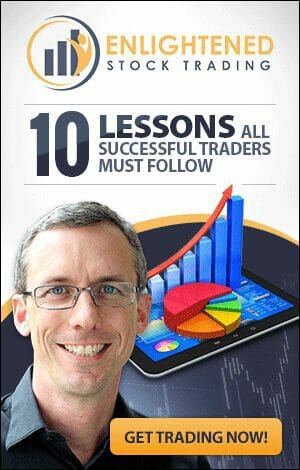George Soros, often known as the “man who broke the Bank of England,” embodies a figure of significant controversy and acclaim within the financial world. His legendary bet against the British Pound in 1992, which earned him a profit of $1 billion in a single day, serves as a testament to his audacity and insight in financial speculation.
Brief Bio of George Soros
Born on August 12, 1930, in Budapest, Hungary, Soros survived Nazi occupation during World War II and fled communist-dominated Hungary in 1947 for England. At the London School of Economics, he studied under philosopher Karl Popper, whose ideas on open society would have a profound influence on his intellectual and philanthropic outlook. Over his career, Soros held positions at various firms including Singer & Friedlander of London and F.M. Mayer of New York.
- Twitter Profile: George Soros
- Facebook Profile: George Soros

Education and Formative Experiences
Soros graduated from the London School of Economics in 1952. His academic background in philosophy provided him with a unique perspective on markets, which he termed as ‘reflexivity,’ a theory he credits for much of his financial success.
Quotes by George Soros
Books by George Soros
George Soros has authored and been prominently featured in several influential books that delve into his investment strategies, philosophical outlook, and economic theories. Here are some notable works:
Trading History and Milestones
Soros is best known for his management of the Quantum Fund, which he founded in 1973. This fund became one of the most successful hedge funds in history, achieving an average annual return of more than 30% while under his management. His most notable trade was in 1992, when he speculated on the devaluation of the British Pound, a risky move that yielded a substantial profit and significantly influenced global financial markets.
Trading Strategy
George Soros is one of the most successful investors in history, known for his macroeconomic approach to trading and his ability to capitalize on financial market trends. Here’s a deeper look into his trading strategies, risk management practices, and how he adapts to changing market conditions:
- Macroeconomic Analysis: Soros often uses a macroeconomic approach to understand large-scale economic trends and political changes. This involves analyzing factors like interest rates, currency fluctuations, and international economic indicators to make investment decisions.
- The Theory of Reflexivity: Soros is famous for his application of the “Theory of Reflexivity” to the financial markets. This theory suggests that market participants influence market fundamentals and that these changes in fundamentals, in turn, influence the participants’ perceptions, leading to a self-reinforcing feedback loop. Soros used this understanding to predict asset bubbles and market shifts.
- Leverage: Soros often employed leverage to maximize returns, meaning he borrowed money to make larger investments than he could with his own funds alone. This strategy can amplify gains but also increases risk.
Risk Management Practices
- Stop-Loss Orders: Soros was known to use stop-loss orders to help manage risks. These are set up to automatically sell an asset when it hits a certain price, thus limiting potential losses.
- Diversification: Although Soros took big positions, he also believed in the importance of diversification to spread risk across various assets.
- Scenario Planning: Soros and his team frequently engaged in scenario planning, considering various possible outcomes of their investments and economic forecasts, and planning their strategy accordingly.
Adapting to Market Conditions
- Flexibility: One of Soros’s strengths was his ability to change his mind and adapt his strategy based on new information. He was not wedded to any particular position if the market evidence suggested otherwise.
- Short Selling: Soros famously “broke the Bank of England” by short-selling the British pound in 1992. He was adept at spotting vulnerabilities in currencies and would take large positions based on these insights, showing his ability to adapt to and capitalize on market crises.
- Continuous Learning and Adaptation: Soros continuously monitored political and economic developments worldwide, adapting his strategies to align with evolving realities. His ability to remain flexible and responsive to new data was a key component of his success.
George Soros’s approach to trading is characterized by a deep understanding of macroeconomic trends, an innovative application of economic theories, and a strong capability to manage risk. His career provides valuable lessons for traders and investors seeking to navigate complex financial markets.
Notable Achievements
- Managed the Quantum Fund to significant gains, averaging over 30% return per year.
- His Open Society Foundations have donated billions to promote democracy, education, and human rights across the world.
Personal Insights
Soros is known for his philanthropic efforts, which reflect his philosophical beliefs in capitalism and open society principles. Despite his success, he maintains that financial markets are inherently unpredictable and often irrational.
Philosophy and Values
Soros emphasizes the importance of fallibility and reflexivity in understanding market behavior. His charitable efforts, particularly through the Open Society Foundations, illustrate his commitment to social issues and political freedom.
Impact and Legacy
Soros’ impact on financial markets is enormous, highlighted by his pivotal role in the Black Wednesday UK currency crisis. His legacy, however, is also marked by his extensive philanthropic outreach, influencing public policies worldwide.
Interview with George Soros:
George Soros Interview (1998)
The Great Speculator – The Mysterious Life of George Soros | A Documentary
Who is George Soros? – BBC News
Note: All information sourced from public domain websites on a best efforts basis. For any corrections, additions, or to request this profile be removed please contact [[email protected]](mailto:[email protected]).
Detailed Profiles of Famous Traders & Famous Investors
Click here to find a complete list of the famous traders and famous investors we have profiled. This is a valuable resource of trading wisdom and inspiration for all traders showing what is possible in this industry.









